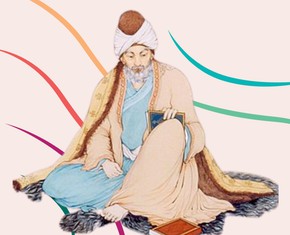The views expressed in our content reflect individual perspectives and do not represent the authoritative views of the Baha'i Faith.
The Baha’i Faith can be viewed as a new system of knowledge brought by Baha’u’llah to transform the individual and society all over the world.
Baha’u’llah was a great teacher, a messenger or manifestation of God. Baha’is believe that God is an unknowable essence, responsible for creating the universe. At different times throughout history, God has sent humanity messengers to guide the peoples of the world. These messengers have included Krishna, Abraham, Moses, Jesus, Muhammad, Buddha, and others. The latest, Baha’is believe, is Baha’u’llah.
The word “Baha’u’llah” means “light, splendor, or glory of God,” and the word “Baha’i” means follower of Baha’u’llah. This is similar to followers of Christ being called “Christians” or followers of Muhammad being called “Mohammedans.”
The Baha’i Faith differs in many ways from earlier religions. For example, Baha’is have no clergy, priests, mullahs, or other authoritative individuals who interpret the Baha’i teachings. The Baha’i Faith depends on the faith of each individual Baha’i to make the system work:
The Purpose of the one true God, exalted be His glory, in revealing Himself unto men is to lay bare those gems that lie hidden within the mine of their true and inmost selves. That the divers communions of the earth, and the manifold systems of religious belief, should never be allowed to foster the feelings of animosity among men, is, in this Day, of the essence of the Faith of God and His Religion. These principles and laws, these firmly-established and mighty systems, have proceeded from one Source, and are the rays of one Light. – Baha’u’llah, Gleanings from the Writings of Baha’u’llah, pp. 287-288.
Here’s a brief summary of what the Baha’i Faith teaches as the essential elements of a better world—a global civilization unified under a single Creator:
- The Oneness of God, the Creator–there is only one God, an unknowable essence who is the creative source of all things in the universe.
- The essential oneness of all religions—because all religions come from the same source, they are essentially one, although there are many differences among them. These are explained by Baha’u’llah in his writings.
- The oneness of all humankind—we are all sisters and brothers in the human race, all created spiritually equal in the sight of God. This implies the need for certain social principles if we are to have a truly unified world. To achieve this, Baha’u’llah taught:
- The equality of women and men–until humankind recognizes gender equality and acts on that recognition, inequity between women and men will persist.
- Elimination of all forms of prejudice—beyond gender prejudice, prejudice of race, religion, social class, economic class, educational level and others will disappear.
- The need for universal, compulsory education—prejudice results from ignorance. When people are properly educated, they will no longer harbor prejudices.
- Independent investigation of truth—Baha’u’llah taught that each individual must investigate truth for himself or herself, particularly in matters of religious belief. Therefore, Baha’is don’t force their beliefs on others, although they will discuss the Baha’i Faith freely and answer questions about it to the best of their abilities. Such investigation is, of course, much easier if people are educated.
- The essential harmony of science and religion—since both science and religion seek truth and purport to tell the truth, there should be no conflict between them. Baha’is believe that if a conflict exists, either the religion is superstition, or the science is in error. Ultimately such conflicts will be reconciled.
- The need for a world government, consisting of three major, autonomous branches:
- A world executive
- A world legislature
- A world judicial system
- This global government would establish:
- A universal auxiliary language, to enable all the inhabitants of earth to communicate with each other, while not abandoning their native tongues.
- A common world currency.
- A universal system of weights and measures.
- A world economic system, based on spiritual principles, for controlling and distributing equitably world’s entire resources.
- A universal peace among all of humankind.
All of these progressive principles, Baha’is believe, will allow humanity to unite in pursuit of a peaceful global future:
… Baha’u’llah, we should readily recognize, has not only imbued mankind with a new and regenerating Spirit. He has not merely enunciated certain universal principles, or propounded a particular philosophy, however potent, sound and universal these may be. In addition to these He, as well as Abdu’l-Baha after Him, has, unlike the Dispensations of the past, clearly and specifically laid down a set of Laws, established definite institutions, and provided for the essentials of a Divine Economy. These are destined to be a pattern for future society, a supreme instrument for the establishment of the Most Great Peace, and the one agency for the unification of the world, and the proclamation of the reign of righteousness and justice upon the earth. – Shoghi Effendi, The World Order of Baha’u’llah, p. 19.
You May Also Like
Comments

















56. It is true thou wilt not be able to guide everyone whom thou lovest: but Allah guides those whom He will and He knows ...best those who receive guidance.
(The Qur'an (Yusuf Ali tr), Surah 28)
So, will you coerce people into belief, while it is Not for a soul to believe Save by God’s permission?” (Qur'an 10:99)
Verily, He guideth whomsoever He willeth to the straight path". Baha'u'llah